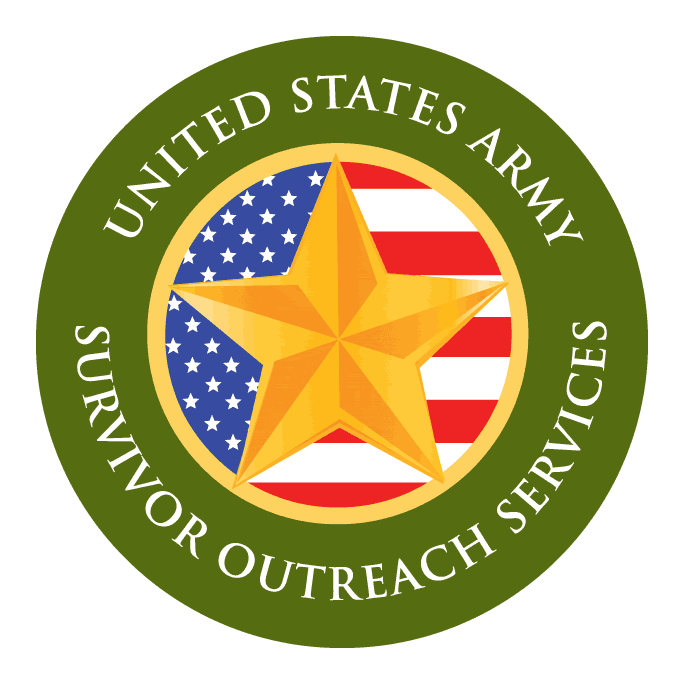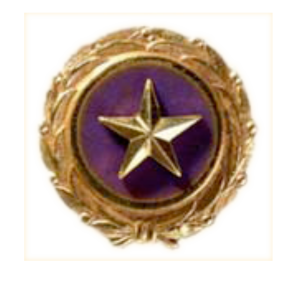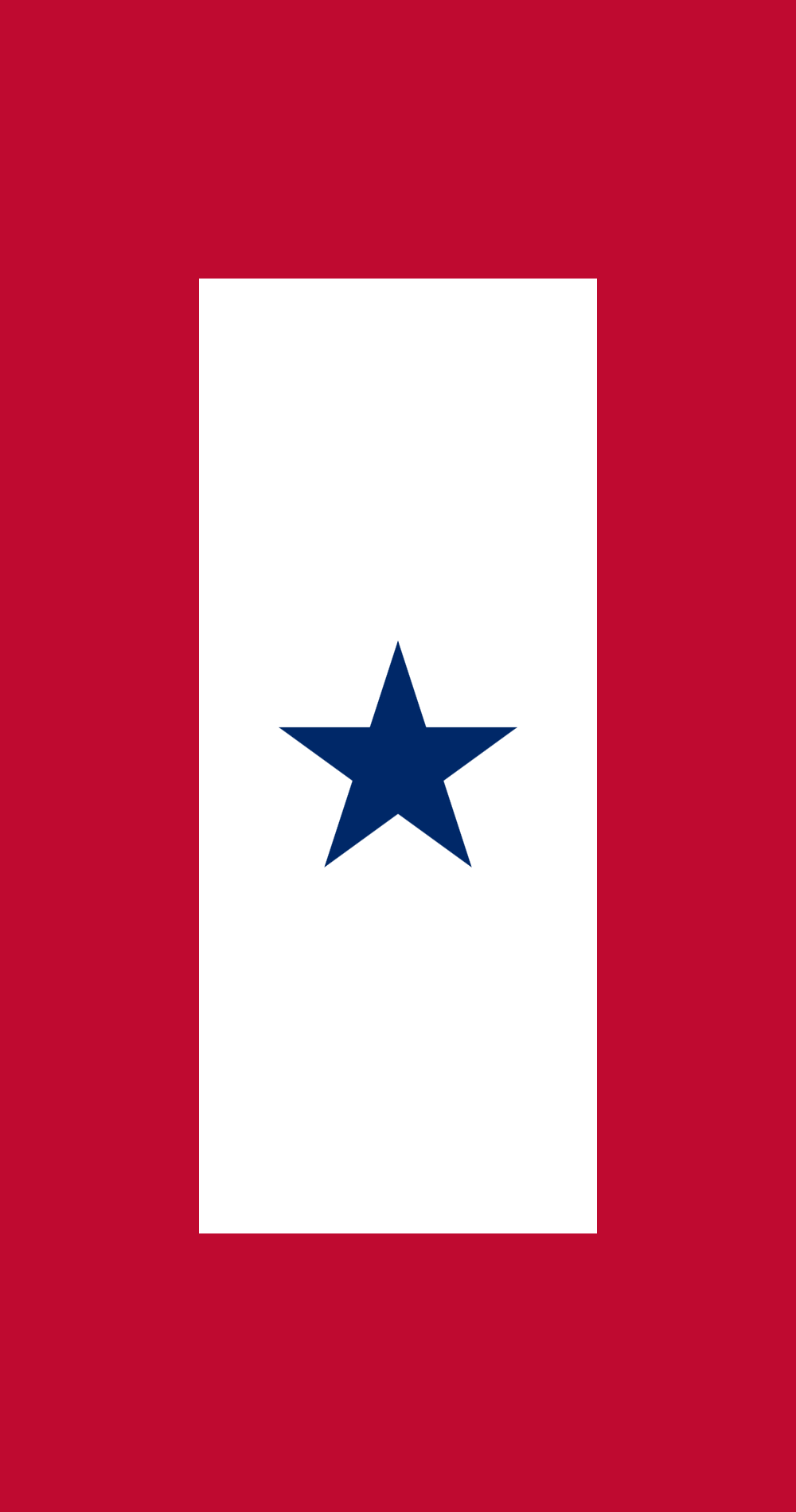- ACS Mission
-
The mission of ACS is to facilitate the commander's ability to provide comprehensive, standardized, coordinated and responsive services that support Soldiers, Department of the Army civilians, and Families regardless of geographical location and to maximize technology and resources, eliminate duplication in service delivery and measure service effectiveness.
- New to the Community? See our Relocation Readiness Program!
-
Information, Referral & Follow-up Program
A comprehensive resource file provides information on both Military and Civilian agencies to Soldiers, Family members and DOD civilians. Trained personnel will assist clients to find the appropriate and available resources.
Where available, this program offers special Host Nation Services which includes un-certified translations of host nation language correspondence and bills.
Relocation Readiness Program
Moving is a part of life for Soldiers, Government Civilians and their Families. The Army Community Service Relocation Readiness Program provides assistance to the Total Army Family. We are dedicated to ensuring our clients are capable of surviving and thriving through the PCS and ETS processes. We have developed this program to assist you in finding information and resources to make you more resilient and agile as you navigate your next move.
Once you are notified of a pending PCS or ETS move, your first stop should be your local ACS (Family Center) where you can meet with a Relocation Readiness Program Manager who will serve as a subject matter expert in assisting you through the process.
Lending Closet
When relocating to a new installation, you can borrow basic household goods from your ACS Lending Closet. Keep in mind that item availability varies from garrison to garrison. Some of the items you may find at your location are:
- Pots and pans
- Dishes
- Kitchen appliances
*Items vary based on installation availability
Adjusting to My New Country*
Host Nation Orientation, where applicable, offers all in-processing personnel and their Families orientation on the local culture, language, transportation and tourism offerings.
ESL materials are available at Army Libraries around Europe. A catalog of all books, audiotapes, and videos can be found here. For additional ESL assistance please contact your ACS.
*If applicable.
Sponsorship Program
This Sponsorship Program is designed to help service members, civilian employees and family members plan their move from a duty station somewhere else in the world to their new duty station in Europe. Below are several links that can assist you during each step of your move.
Pre-Arrival: Planning your move after receipt of your assignment/orders
Post-Arrival: Must-know & nice-to-know information after you get to your new duty station
For more information on the above services and programs please feel free to give us a call!
Installation Relocation Assistance Plan
The Installation Relocation Assistance Plan is another tool full of resources to help with your move into or out of our community
- Mobilization, Deployment & Stability Support Operations (MDSSO)
-
The Mobilization, Deployment & Stability Support Operations (MDSSO) supports community readiness before, during and after deployments and emergencies. MDSSO helps unit Commanders with Family Readiness plans and deployment support services for Service Members and Families. MDSSO operates the Emergency Family Assistance Center (EFAC) in times of all-hazards events by supporting Service Members and Families immediately after a catastrophe hits. The EFAC also supports Families during Non-Combatant Evacuation Operations (NEO) and Repatriation. MDSSO provides case management for all requests for assistance through the Army Disaster Personnel Accountability and Assessment System (ADPAAS).
Some of our resources include:
- Pre- and Post-Deployment Support: Help prepare Soldiers and Families before and after deployment by providing training and resources in a variety of settings.
- Soldier and Family Readiness Groups (SFRGs): Designed to assist unit Commanders provide Families with information they need by development of support groups during deployment and in garrison. Virtual Soldier and Family Readiness Groups also provide secure environments in which Commanders can communicate directly with Soldiers and Families 24 hours a day no matter where they are.
- Emergency Family Assistance Center (EFAC): Your link to continuous support and assistance as well as authoritative and accurate information in a sensitive, timely, and effective manner.
- Army Disaster Personnel Accountability and Assessment System (ADPAAS): Ensures all Army personnel and their dependents are accounted for during emergency situations. ADPAAS also gives the option to identify immediate needs for Soldiers and Families just after emergencies occur and creates a case for EFAC managers to review and provide assistance in a timely manner.
- NEO/Repatriation: MDSSO assists State Department personnel help those who have been displaced after national emergencies and disasters.
For more information on Mobilization, Deployment and Support Stability Operations support in your community, contact your local Army Community Service office and ask for the Mobilization and Deployment program manager.
Other helpful links:
- Army Family Web Portal (AFWP): Soldier and Family Readiness Groups (SFRGs) are a resource with knowledge of programs and services available to assist in preparing Soldiers and Family members for life in garrison or during deployment. It is critical that every Soldier and Family member are well-informed and well-prepared. Soldier and Family Readiness is defined as Families who are prepared and equipped with the skills and tools to successfully meet the challenges of the military lifestyle. Soldier and Family Readiness Group volunteers are an integral part of the planning and preparation that goes into making SFRGs successful.
- Comprehensive Soldier Fitness (CSF): Comprehensive Soldier Fitness (CSF). The program, based on 30-plus years of scientific study and results, uses individual assessments, tailored virtual training, classroom training and embedded resilience experts to provide the critical skills our Soldiers, Family members and Army Civilians need. CSF marks a new era for the Army by comprehensively equipping and training our Soldiers, Family members and Army Civilians to maximize their potential and face the physical and psychological challenges of sustained operations. We are committed to a true prevention model, aimed at the entire force, which will enhance resilience and coping skills enabling them to grow and thrive in today's Army.
- Deployment: Every deployment is different, whether it's your first tour of duty or your fourth. Make each phase of your deployment cycle successful by being prepared and informed. From pre-deployment to homecoming and reintegration, Military OneSource and your local Military and Family Support Center provide the information, resources and services you need to master your military life.
For more information and assistance, please contact the program manager at your garrison location.
- Want to Learn about Army Life and How to Contribute More to the Community?
-
Look no further! AFTB and AFAP are here for you!
Army Family Team Building (AFTB)
AFTB is a series of training modules taught through your local Army Community Service or Family Program’s office that cover topics such as basic information about the Army, personal growth skills and leadership skills. AFTB improves personal and Family preparedness which enhances overall Army readiness and helps America’s Army adapt to a changing world.
AFTB helps you to not just cope with, but enjoy the military lifestyle. Many of the courses can be applied toward resume’ and career building, self-development and leadership skills. AFTB provides the knowledge and self-confidence to take responsibility for yourself and your Family. The training is available to Soldiers, Family members of all Soldiers, Department of Defense civilians and volunteers.
My Army OneSource: Army Family Team Building
Contact your AFTB Program Manager more information!
Army Family Action Plan (AFAP)
In addition to learning through the AFTB program, the Army Family Action Plan is your platform to voice your quality-of-life issues, ideas, or suggestions and contribute to help better your community. It’s the best way to let Army leadership know about what works, what doesn’t, and how you think problems can be resolved. We give Active and Reserve Component Soldiers, Army Civilians, Retirees, Survivors, and Family members a primary tool to help identify issues and concerns and shape your standards of living.
You can submit issues at your garrison’s Army Community Service office or to a unit Family Programs liaison. Army OneSource also facilitates AFAP issues online and makes sure your concerns get the attention they deserve. The information you submit gives Army leadership insight and helps foster a satisfied, informed, and resilient Army Community.
AFAP makes a meaningful difference. Since AFAP was created in 1983, 698 issues have been submitted, resulting in 128 legislative changes, 186 Department of Defense or Army policy changes, and 210 improved programs or services.
Here’s a sample of AFAP results:
- Dedicated Special Needs Space in Child, Youth, and School Services (CYSS)
- Distribution of Montgomery GI Bill benefits to dependents
- Annual Leave carryover increase from 60 to 75 days
- Extended educational benefits for Spouses
- Dental and visual insurance coverage for Federal Employees
- Medical Coverage for Activated Reserve Component Families
- Military pay table (targeted pay raises)
- Military Thrift Savings Plan
- TRICARE for Life for eligible Retirees
- Funding for Better Opportunities for Single Soldiers (B.O.S.S.)
- Active Duty Enlisted Soldier Compassionate Reassignment Stabilization
- SGLI increases
- Minimum standards for Army Child Care
- In-state tuition for Military Dependents
To submit an issue or suggestion, go to your local Army Community Service office or Army OneSource.
Army Family Action Plan (AFAP) is a year-round process that begins at the installation or unit level. It is the preeminent means for commanders at all levels to learn of and seek solutions to the concerns of their communities. The Army is the only Service with a program like AFAP.
How AFAP Works
The AFAP process begins at the installation or community level. Each Installation conducts an annual AFAP forum. Members of the global Army family identify, develop and set priorities for issues. The delegates to the AFAP conference consist of Program Managers, Volunteers, DA civilians, Retirees, Active and Reserve Component soldiers and Family Members. Many of the identified issues are specific to the installation and can be resolved at that level.
Issues are assigned to the office that has responsibility for resolving the issue. The installation Executive Management Group reviews the issues and monitors them until they are resolved. Issues beyond the scope of an installation commander that require a higher level of authority go forward to the MACOM or to HQDA.
How to submit an issue:
- Visit https://ims.armyfamilywebportal.com/
- Highlight: "Family Programs & Services"
- In the drop-down menu, click: "AFAP Issue Management System"
- Click: "Submit Issue"
- Click: "Active Army"
- Submit your issue in "USAG Kaiserslautern" regardless of your military community.
Become an AFAP Delegate
Be a part of the solution and work together to address concerns that affect quality of life in your garrison and the Army as a whole. Volunteer to become a delegate and be a part of making our community a better place for tomorrow.
- Earn volunteer hours
- Open to all Service Members, Civilians, Retirees, and Family Members
- Previous AFAP attendance/experience is helpful
Small actions can speak loudly! Come be a part of the solution!
- In Need of Financial Assistance or Advice?
-
Financial Readiness Program (FRP)
The Financial Readiness Program is your resource for information on money matters. We can help you better understand financial topics like:
- Military pay
- Checkbook/debit card management
- Financial responsibility
- Credit reporting
- Debt elimination strategies
- Saving
- Investing
- Budgeting
ACS also has Financial Counselors available for advice, guidance, and support. In times of emotional distress, figuring out what to do about finances can create a heavy burden. Survivor Outreach Services Financial Counselors provide professional financial information and services in areas such as investing, estate planning, tax issues and basic budgeting. Our Financial Counselors will be there when you need them, for as long as you need them. They are committed to assisting you in creating your financial security and ensuring you receives the necessary information to make sound financial decisions.
We can also help you learn about other financial services, including:
For more information about how the Financial Readiness Program can help you, contact your nearest Army Community Service Center.
Other helpful financial readiness links include:
- Thrift Savings Plan: A Federal Government-sponsored long-term retirement savings and investment plan, available for both Federal civilian employees and members of the uniformed services.
- U.S. Savings Bonds: A shorter-term savings option with competitive interest rates and backed by the full faith and credit of the United States.
- Annual Credit Report: Free online credit reports are available from Equifax, Experian and TransUnion. Credit reports play an important role in your financial life, and we encourage you to regularly check your credit history.
- Military OneSource: A Department of Defense-funded program that provides comprehensive information on every aspect of military life at no cost to active duty, National Guard, reserve members, and their Families.
- Office of Servicemember Affairs: A component of the Consumer Financial Protection Bureau helps to educate and empower military members, veterans, and their Families in the consumer financial marketplace.
- FINRA For Investors: A tool to use when making a decision for investments. They offer tips to help service members, making sure they are protected and are asking all the right questions when navigating investments.
- Service Credit Union: (SCU) provides financial products and services that fit the unique needs of military members, veterans, DoD employees and their families. In addition to free checking accounts, high-rate savings accounts and competitive loans, Service CU provides international bill pay in local currency, early pay and special military savings accounts. They also provide free in-person and virtual financial wellness classes across a variety of topics. View their Banking for Military Members webpage HERE to find out more.
- Community Bank. Community Bank offers a wide range of country-specific and stateside-like products and services to help you manage your money while living overseas. Their associates will help you customize a unique blend of localized services to help you pay your local and stateside bills, obtain U.S. Dollars and local currency easily and affordably, and even help you structure a savings plan for covering potential emergencies. They can even help you with becoming more financially literate. Visit their website HERE
Army Emergency Relief (AER)
Army Emergency Relief (AER) is a 501 (c)(3) private, non-profit organization established to assist Soldiers and their Family members in emergency financial situations due to no fault of their own. Financial assistance is given in the form of an interest-free loan, grant, or combination of the two. Loans are repaid by an allotment.
To apply for AER assistance, contact ACS to receive application packet via e-mail or download forms at the new website Army Emergency Relief
Services & Assistance
AER has 30 categories of assistance to help with emergency financial needs:
- Food
- Rent Utilities
- Emergency transportation & vehicle repair
- Funeral expenses
- Medical/dental expenses
- Personal needs when pay is delayed or stolen
- Other emergency financial needs.
AER partners with other military aid societies to enable local assistance for service members from the Air Force, Navy, Marine Corps, and Coast Guard.
Education Programs
AER’s Education Program is a secondary mission to help Army Families with the costs of education. AER gives qualified spouses and dependent children of Army Soldiers great opportunities for their first undergraduate degree (some scholarships can reach $4,000 annually)! Application information can be found online at Army Emergency Relief.
The three separate scholarship programs are:
Stateside Spouse Education Assistance Program
- Applicant must be the Spouse or widow(er) of an active duty or retired Soldier and reside in the United States.
- Stateside applicants must be full time students.
- First undergraduate degrees only.
- Active duty military personnel are not eligible.
Overseas Spouse Education Assistance Program Major General James Ursano Scholarship Fund for Dependent Children.
Overseas Spouse Education Assistance Program
- Applicants must be a Spouse of an active duty Soldier assigned in Europe, Korea, Japan, or Okinawa.
- Applicants must physically reside with the Soldier at the assigned location.
- First undergraduate degrees only.
- Off post students are not eligible.
- Spouses may be part time or full time students.
Major General James Ursano Scholarship Fund for Dependent Children
- Dependent children, stepchildren, or legally adopted children of Army Soldiers on active duty, retired or deceased while in active duty or retired status.
The children of Grey Area Reservists/National Guard are eligible as well.
Scholarship awards are based on financial need, as evidenced by income, assets, Family size, and special circumstances.
Applications and instructions are available for all the scholarships on the AER website at Army Emergency Relief
Resources & Forms
AER Annual Campaign
Army Community Service (ACS) offers a variety of trainings and opportunities to become a Unit Representative for the Annual Army Emergency Relief (AER) Campaign. Participants can learn the history, purpose and overall information for the AER Campaign. This course focuses on the responsibilities of being a Unit Representative for the Annual AER Campaign.
Gain the knowledge you need to help those in need!
Consumer Complaint
Have you been a victim of unfair or deceptive business practices in our local area? Have you tried to resolve the issue but met with negative results? If so, you should consider filing a consumer complaint through the ACS Financial Readiness Program office.
Any of the following experiences would be considered a Consumer Complaint:
- Misleading advertising
- Improper selling practices
- Non-delivery of goods or services
- Complaints about nonprofit/charitable organizations
- The misuse of personal information and could not resolve the situation with the local agency
Consumer Complaint (pdf) can be submitted through the ACS Financial Readiness Program office at DSN 531-2850 or CIV 0611-143-531-2850. Our office works closely with the JAG office to try and help you solve your issues.
Solicitation Information
AR 210-7, Personal Commercial Solicitation on Army Installations: https://www.esd.whs.mil/Portals/54/Documents/DD/issuances/dodi/134407p.pdf
DoDD 1344.7-Personal Commercial Solicitation on DoD Installations: http://www.dtic.mil/whs/directives/corres/pdf/134407p.pdf
Military Scams: http://www.consumerfinance.gov
KMC Off-Limits Establishment or Business List: RP_Current_KMC_OFF-LIMITS_List.pdf
Credit Report Assistance
Did you know?
It is recommended to check all three credit reports at least once a year to ensure there are no errors keeping consumers from getting bad credit or best available terms on a loan.
It is highly recommended for consumers to also check their personal report prior to making a major purchase that involves a loan like a house or a car. This process will also protect government issued security clearances.
An annual free credit report can be accessed from www.annualcreditreport.com.
It is also a good idea to review personal credit information regularly to guard against identity theft. Identity theft occurs when someone uses your personal or financial information to commit fraud.
For example, an identity thief may use your information to open a new credit card account in your name. When they do not pay the bills, the delinquent account is reported on your credit report, damaging your ability to get credit in the future and subjecting you to calls from bill collectors.
For more information, visit the Federal Trade Commission's http://www.ftc.gov.
- Employment & Volunteering
-
The Employment Readiness Program (ERP) offers resources to help with your career
plan and job search. Whether you are a Military Spouse or Family Member who just
moved to a new installation, Retired, or DoD Civilian looking for new opportunities, or
Active Duty Military, Activated Reserve/National Guard, or Wounded Warrior, we are
here to help.
Our services include:- Up-to-date information on local, national, and international employment opportunities, job market trends and education, and volunteer resources.
- Classes on career exploration, resume writing, interviewing techniques, dressing for success, networking, entrepreneurism, and federal employment.
- Resume critiques through appointments after training.
- Career counseling and individual career assessments through appointments.
- Job fairs and other hiring events.
- Teen/Youth employment information class by request.
- Computers with internet access for job search aides, career assessment, the development of job skills, basic computer skills, word processing, customer service, entrepreneurship, job search and networking, career planning and salary through GFC Global.org resume-writing software.
- Virtual Career Library access for job and education sites - PDF listing
Visit the Employment Readiness page HERE
Contact your Employment Readiness Program Manager for more information.
Army Volunteer Corps (AVC)
The Army Volunteer Corps plays a crucial role in community involvement and development. Volunteers make a meaningful difference in the lives of Soldiers and their Families every day. Army Volunteer Corps is designed to help you find local volunteering opportunities with organizations that benefit the Army community and allows you to obtain ongoing training and advancement.
The AVC has redefined volunteering within the Army. We embrace existing volunteer programs, unite all volunteers who support Soldiers and Families, including the Active Force, National Guard and Army Reserve, and formalize the Army’s commitment to volunteerism.
No matter where people volunteer in the Army community, they usually want to contribute to Soldiers and their Family members. We recognize this common goal and want to help you find the right opportunity for you.
Volunteering helps your community and helps you as well. When you participate with AVC, you’ll:
- Gain a sense of satisfaction/achievement by meeting challenges
- Learn about the Army, our sister services, and the community
- Acquire new skills and/or expand old ones
- Obtain work experience
- Build new friendships and become a cohesive part of the community
For more information regarding employment, volunteering, or training opportunities please contact your ACS location!
Find Volunteer Opportunities in your community through Army OneSource.
- Family Advocacy Program (FAP)
-
Family Advocacy Program in Europe (FAP-E)
The FAP-E outreach and prevention program is designed to strengthen and improve the quality of life for our military Families by increasing self-sufficiency, resiliency and community cohesion for active duty, Family members, civilians and retirees. Together with garrison and host nation agencies, FAP-E provides a multitude of programs and services designed to build individual and Family strengths as well as advocate for non-violent communities. The goals of the FAP-E are:
- Leverage individual and Family strengths
- Overcome behaviors that may contribute to Family maltreatment
- Value Family member differences
- Enhance behaviors that foster healthy military lifestyles
FAP-E professionals strive to create command and community awareness of the unique challenges associated with living in Europe, provide information on existing services to eliminate child abuse and domestic violence, and to develop specific educational programs at no cost to active duty. Our services include seminars, workshops, and individualized intervention.
FAP-E is dedicated to helping Soldiers and Families address the unique challenges of military life, living overseas and understanding how unmanaged stress can lead to child abuse and domestic violence. Services focus on prevention, education, prompt reporting, investigation, intervention, and treatment. If you need help, please call your garrison’s Family Advocacy Program for more information.
Domestic Abuse Victim Advocate Program (DAVA)
The Domestic Abuse Victim Advocate (DAVA) provides comprehensive support services to adult victims of domestic abuse including: crisis intervention, safety planning, help obtaining medical treatment for injuries, information on legal rights and proceedings, referral to military and civilian shelters, and other resources.
DAVA’s provide information so clients can make informed choices in reporting an assault and how they choose to proceed. DAVA’s are available to accompany adult clients to medical visits, court proceedings, and other appointments as requested. DAVA’s provide services 24 hours-a-day, 7 days-a-week. Victims are not alone, help and support are available.
New Parent Support Program (NPSP)
The New Parent Support Program is a voluntary program that assists military Families who are pregnant or have children birth through age three years understand the process of delivering a baby overseas and adapt to parenthood in healthy and resilient ways.
The primary focus of NPSP is providing individualized home visitation services in the parent and child’s natural learning environment however services can occur in an office, hospital or community setting. Classes and groups are available which provide information on pregnancy, nutrition, parenting newborns and toddlers, problem solving and coping, discipline issues, social isolation, and military stressors. Services are available outside normal duties hours so working parents can participate.
Each NPSP Home Visitor has a Masters degree in Social Work or a Bachelor of Science in Nursing degree and is Licensed to practice Clinical Social Work, Marriage and Family Therapy, or Nursing in a US state.
For assistance or information on any of these Family Advocacy Program – Europe services, call your garrison Army Community Service (ACS) Family Advocacy Program. You can also call Military OneSource for more information and referrals. Call collect with operator assistance OCONUS: 484-530-5908.
Emergency Placement Care (EPC)
Emergency Placement Care (EPC) is a program dedicated to ensuring the safety and well-being of children who may be victims of child abuse and/or neglect.
For more info about the program and how to become an EPC provider: Emergency Placement Care
- Violence Prevention and Education
-
The Family Advocacy Program is dedicated to the prevention, education, prompt reporting, investigation, intervention and treatment of spouse and child abuse. The program provides a variety of services to soldiers and families to enhance their relationship skills and improve their quality of life. This mission is accomplished through a variety of groups, seminars, workshops and counseling and intervention services.
· Emergency Placement Care Program (EPC)
· Victim Advocacy Program (Domestic Violence)
· FAP education and prevention
· New Parent Support Program (NPSP)
· Support groups and enrichment classes
Victim Advocacy Program
The Family Advocacy Program: Victim Advocacy Services Program provides comprehensive assistance and support to victims of domestic abuse and sexual assault, including crisis intervention, safety planning, and assistance in securing medical treatment for injuries, information on legal rights and proceedings, and referral to military and civilian shelters and other resources available to victims. Victim Advocacy services are available 24 hours a day 7 days a week to Soldiers and Family members.
Domestic Abuse Victim Advocate Program (DAVA)
The Domestic Abuse Victim Advocate (DAVA) provides comprehensive support services to adult victims of domestic abuse including: crisis intervention, safety planning, help obtaining medical treatment for injuries, information on legal rights and proceedings, referral to military and civilian shelters, and other resources.
DAVA’s provide information so clients can make informed choices in reporting an assault and how they choose to proceed. DAVA’s are available to accompany adult clients to medical visits, court proceedings, and other appointments as requested. DAVA’s provide services 24 hours-a-day, 7 days-a-week. Victims are not alone, help and support are available.
What is Domestic Violence?
Violence is the intentional injury and/or pattern of intentional acts that affect the psychological and physical well being, safety and security of an intimate partner. Domestic abuse essentially involves the misuse of power and exercise of control by one person over another with whom there is or has been an intimate relationship.
Physical Abuse: Occurs when one person uses physical pain or threat of physical force to intimidate another person. Actual physical abuse may involve simple slaps or pushes, or it may involve a full physical beating to include punching, kicking, hair pulling, scratching, spitting on, threatening with a weapon and real physical damage sufficient in some cases which require hospitalization.
Psychological Abuse: Also known as emotional abuse, occurs when one person controls information available to another person so as to manipulate that person’s sense of reality; what is acceptable and what is not acceptable. Psychological abuse often contains strong emotionally manipulative content designed to force the victim to comply with the abuser’s wishes. It may be emotional abuse in this sense when it is designed to cause emotional pain to victims or to “mess with their heads” in attempts to gain compliance and counter any resistance.
Financial Abuse: Can take on many forms, from denying you all access to funds, to making you solely responsible for all finances while handling money irresponsibly him/herself. Money becomes a tool by which the abuser can further control the victim, ensuring financial dependence on the abuser, or shifting the responsibility of keeping a roof over the family’s head onto the victim while simultaneously denying your ability to do so or obstructing you.
Tension Building Phase: Moodiness, sullen, faultfinding and very critical, withdraw affection, isolate partner, belittle partner, make threats
Acute Explosion Phase: Beat partner often severely, rape, attach with weapons, extremely verbally abusive
Honeymoon Phase: Apologizes, cry and beg for forgiveness, promises to get help, to go for counseling, to do “whatever it takes”, send flowers and presents, promise it will never happen again, make up sex
Reporting Options
Restricted:Restricted reporting allows a victim of intimate partner violence the option of reporting an incident of violence to the victim advocate, family advocacy program manager or social work services case manager and receive victim advocacy services and medical care without starting a law enforcement investigation or having command involvement. It is intended to give victims the care and support they need and the extra time to make more informed decision regarding reporting to command or law enforcement. A victim has the right to change a restricted report to unrestricted at any time within one year from the initial restricted report.
Unrestricted: Unrestricted reporting involves a victim making a report to the service members command, Family Advocacy program or Law enforcement. The incident will be fully investigated and the victim will have access to victim advocacy services and FAP clinical services.
What can you do to ensure safety?
· If the situation is lethal and you can leave safely, do so
· Contact a victim advocate or local shelter for safety planning and resources
· Seek a civilian or military protective order
· Change locks, add lighting and a possible alarm system or door/window sensors
· Inform family, friends and neighbors of your situation so that they may also keep a look out
· Tell your supervisor and/or school/daycare about your situation so that they may assist
· Always let someone know your whereabouts, be aware of your surroundings
Who do I call for help?
FAP Victim Advocacy (24/7 Domestic Violence Hotline):
Baumholder: +49 (0)15-204-876330
Kaiserslautern: +49 (0)15-204-876330 - Family Members with Special Needs (EFMP)
-
Exceptional Family Member Program (EFMP)

Military Families with a special needs Family member, also known as an Exceptional Family Member (EFM), often require additional help in meeting the EFM’s needs. The Army designed the EFMP to be a comprehensive, coordinated, multi-agency program that provides community support, housing, medical, educational, and personnel services to military Families with an EFM.
The Exceptional Family Member Program (EFMP) is a mandatory enrollment program that works with other military and civilian agencies to provide comprehensive and coordinated community support, housing, educational, medical, and personnel services to Families with special needs. Soldiers on active duty enroll in the program when they have a Family member with a physical, emotional, developmental, or intellectual disorder requiring specialized services so their needs can be considered in the military personnel assignment process.
Family members must be screened and enrolled, if eligible, when the Soldier is on assignment instructions to an OCONUS area for which command sponsorship/Family member travel is authorized, and the Soldier elects to serve the accompanied tour. This screening consists of medical records review for all Family members, and developmental screening for all children 72 months of age and younger.
Soldiers are responsible for keeping their EFMP enrollment current as exceptional Family member (EFM) conditions change or at least every three years, whichever comes first.
Use these resources, tools, and articles to learn more about EFMP and the families it serves.
- Enrollment and Screening Information
- Basic Information (All Branches of Service)
- Army EFMP Basic Information
Special Needs Accommodation Process or now known as the Multi-disciplinary Inclusion Action Team (SNAP/MIAT)
The Special Needs Accommodation Process or now known as the Multi-disciplinary Inclusion Action Team (SNAP/MIAT) is a team established to ensure the most appropriate placement of children with special needs. The team meets to review any new applications for Child, Youth and School Services (CYSS) programs that indicate any possible special needs, review the needs of children already placed in the CYSS program and determine if those needs can be met. Military Members are mandated to enroll in EFMP for most of these conditions and if they are not enrolled, the EFMP Manager will contact the Service Member and suggest that an enrollment screening into EFMP be initiated.
So what is considered a special need?
Basically anything that would requires special attention from a caretaker. It can be illnesses and conditions such as allergies, asthma, attention deficit disorder/attention deficit hyperactivity disorder, diabetes, autism, epilepsy, down’s syndrome, seizure disorder as well as physical challenges, learning disability, sensory impairment (hearing/vision), developmental delays, speech/language impairment, food allergies/intolerances and many more.
The team is comprised of the Exceptional Family Member Program Manager, the Army Public Health Nurse, CYSS Coordinator/CYSS Program Directors, Parent Outreach Coordinator and the Parents/Sponsors/Caregivers. Other appropriate Experts may be able to attend as augmenters if needed/requested. At the meeting the child’s needs are discussed to see if accommodations are necessary and if there are any activity restrictions. Also addressed at the meeting will be the expectations of the service to be provided by the CYSS staff, as well as educational and developmental intervention program information regarding developmental evaluations, and programs and services offered by CYSS.
The goal is to ensure that the child has the very best experience at CYSS and that staff are trained to provide the care that a particular child needs. If your child presents a special need that is new to the staff, they will receive specialized training before your child is entrusted to their care. This training will be in addition to their periodic training that addresses special needs topics that all School Age Care staff receive.
Army EFMP Respite Care
For Active Army and Active Guard and Reserve Families who are responsible for regular care of persons with disabilities, the Exceptional Family Members Program Respite Care Program provides a temporary rest period. Care may be provided in the Family’s home or other settings such as special needs camps and enrichment programs.
The Army EFMP put respite care in place to give eligible Families, especially now with multiple deployments, the opportunity to receive respite care when it’s needed. Families apply for the Respite Care Program at the nearest installation Army Community Service (ACS) EFMP Office.
Eligibility for Respite Care Program is based on EFMP enrollment and the medical or educational condition of the Family member requiring care. Qualifying Families are eligible to receive up to 40 hours of funded EFMP respite care monthly for each certified Family member.
Respite care decreases Family stress, increases Family stability and reduces costly out-of-home placements, thereby contributing to Soldier readiness. Due to increase in mobilization and deployments because of Global War on Terrorism, remaining parent/sponsor has sole responsibility for all Family support needs.
OCONUS, Respite care services can be requested and reviewed by contacting your local ACS EFMP office.
The team is comprised of the Exceptional Family Member Program Manager, the Army Public Health Nurse, CYSS Coordinator/CYSS Program Directors, Parent Outreach Coordinator and the Parents/Sponsors/Caregivers. Other appropriate Experts may be able to attend as augmenters if needed/requested.
Respite Care Information
Army One Source: Exceptional Family Member Respite Care Program - Support for the Wounded, Ill, or Injured
-
Warrior Transition Battalion (WTU)
The Warrior Transition Battalion Europe provides command and control for four Warrior Transition Units serving a 750,000 square mile area. A “triad” consisting of a primary care manager, a nurse case manager, and a squad leader focus on helping each Soldier heal during the Medical Evaluation Board process and return to active duty or assist them return with dignity to civilian life. They provide Mission Command and administrative support to Soldier’s requiring complex care; co-ordinate and synchronize care, treatment, and services through the Triad of Care multidisciplinary team.
Soldier and Family Assistance Center (SFAC)
Soldier and Family Assistance Center services will be tailored and responsive to the needs of the WTU and their Families. Most services will be present in the SFAC location in order to maximize the convenience to the WTs and their Families. Other services requiring less than a full-time presence will be brought forward to the SFAC at designated times. Still other services will be provided through priority off-site appointments coordinated by the SFAC staff. SFAC sites will provide a warm, relaxed environment where Soldiers and their Families can gather to foster physical, spiritual and mental healing.
The services identified to date to be present or coordinated in the SFAC are:
- Entitlement and Benefits Counseling
- Military Personnel Services, such as ID cards
- Educational Services
- Transition/Employment Assistance
- Social services to include financial counseling, stress management, translator coordination and Exceptional Family Member services
- Travel pay for Family members on Invitational Travel Orders (ITO)
- Substance Abuse information and referral for Family members
- Coordination of Legal and Pastoral Services
Contact your local SFAC Representative for more information!
- Survivor Outreach Services (SOS)
-

Survivor Outreach Services (SOS)
Our Fallen Warriors have paid the ultimate sacrifice. The Army has a commitment to their Families. Families deserve our respect, gratitude and the very best we can provide.
Survivor Outreach Services is a “one” Army program. Regardless of your loved one’s Army component, duty status, location, or manner of death, Survivor Outreach Services Support Coordinators and Financial Counselors are here to provide dedicated outreach and support when, and for as long as you desire.
SOS offers support through:
Benefits Coordinators. No one is ever fully prepared to lose a loved one, which is why we have Benefits Coordinators. Benefit Coordinators are located at the Casualty Assistance Center and are there to assist and guide you as you make the many decisions necessary following the death of a Soldier. Benefits Coordinators help identify your specific benefits and entitlements and ensure you receive what is legally yours. They assist you in completing paperwork and navigating the various agencies Survivors encounter. Benefits Coordinators remain current on changes in the law and have a wealth of information available to support you during this very difficult time.
Financial Counselors. In times of emotional distress, figuring out what to do about finances can create a heavy burden. Survivor Outreach Services Financial Counselors provide professional financial information and services in areas such as investing, estate planning, tax issues and basic budgeting. Our Financial Counselors will be there when you need them, for as long as you need them. They are committed to assisting you in creating your financial security and ensuring you receives the necessary information to make sound financial decisions.
Support Coordinators. The Survivor Outreach Services Support Coordinator provides long term support to you and is your link to the Army Family for as long as your desire. Wondering what direction to go in now? Your local Support Coordinator is happy to sit down with you as you journey through this transition by providing direct services as well as information, referrals and recommendations. They can also connect you with support groups, bereavement and financial counselors, as well as help you request copies of documents obtain answers to questions and direct you to additional Survivor resources.
For more information contact your local SOS Support Liaison!
ABOUT THE GOLD STAR AND NEXT OF KIN LAPEL BUTTONS
In 1947, Congress* approved the use of the Gold Star Lapel Button as a way to recognize the families of service members who lose their lives while engaged in action against an enemy of the United States. In 1977, the Army approved issue of the Lapel Button for the Next of Kin of Deceased Personnel to honor those who lose their lives while serving on active duty or while assigned in a Reserve or National Guard unit in a drill status. Issue of the button is retroactive to 29 March 1973."
These small lapel buttons, or pins, as they are commonly called, are normally presented to eligible family members prior to the military funeral service. Although they are less than an inch in size, they are packed with great meaning and emotion. They are not awards. They are symbols of honor. Here is how you can tell them apart.
GOLD STAR LAPEL BUTTON

This symbol consists of a gold star on a purple background, bordered in gold and surrounded by gold laurel leaves. It is designated for eligible survivors of service members who lose their lives during any armed hostilities in which the United States is engaged, dating back to World War I. This includes service members who lose their lives while deployed in support of military operations against the enemy or during an international terrorist attack.
NEXT OF KIN OF DECEASED PERSONNEL LAPEL BUTTON

This symbol consists of a gold star within a circle that commemorates his or her honorable service. The gold star is also surrounded by sprigs of oak that represent the branches of the Armed Forces. It is designated for eligible survivors of service members who lose their lives while serving honorably under circumstances not defined above. This includes service members who lose their lives while assigned to a Reserve or National Guard unit in a drill status. It is authorized for issue retroactive to March 29, 1973.
Who can wear the pin?
The family members entitled to receive and wear these symbols are the widow or widower; each child, stepchild, and child through adoption; each brother, half brother, sister, and half sister; and each of the parents (this includes mother, father, stepmother, stepfather, mother through adoption, father through adoption, and foster parents in loco parentis).
I did not receive a pin, where do I get one?
If you are an eligible family member, but did not receive the lapel button to which you are entitled, you can request one through the National Archives. You can also apply for a replacement should yours ever be lost or damaged. If you would like help applying for a new or replacement Lapel Button, contact Army Survivor Outreach Services.
*The descriptions on this page are intended to provide an overview of the public law governing the distribution of Gold Star lapel buttons. To view the law in its entirety, click here.
For more information on the Gold Star and Next of Kin Lapel Buttons please visit Gold Star and Next of Kin Lapel Buttons information
Symbols of Honor: Blue Star and Gold Star Service Flags
The Blue Star Service Flag

Blue Star Service Flag: Patented by retired Army CPT Robert Queissner in 1917, the Service Flag, also known as a Blue Star Flag or Service Banner, represents a family member serving in the Armed Forces during a time of conflict.
The Gold Star Service Flag

The Gold Star Service Flag: Created in 1918 after President Woodrow Wilson approved a suggestion allowing mothers who lost a child serving in the war to wear a gold gilt star on the traditional black mourning arm band.
Service Flags were officially authorized by Congressional Act 36 U.S.C. 179-182 (1967), the Service Banners are usually displayed in a window of a home where an immediate Family member of a service member resides. Service flags may be displayed for the duration of the conflict.
For more SOS Information, please visit the links below:
- Military & Family Life Counseling (MFLC) Program
-
The Military & Family Life Counseling (MFLC) Program at a glance:
- Provides non-medical short-term, situational problem-solving counseling to Service Members and their Families
- Provides psycho-education to help Service Members and their Families understand the impact of stress, deployments, family reunions following deployments and the stresses of military life
- MFLC services augment existing military support services
- Flexible service delivery (outreach/rotational and on-demand)
- Services are available after hours and on weekends
- Services can be provided on or off military installations
- Services provided to individuals, couples, families and groups
- Children's Support Program addresses impact of military life on children
- Mandated reporters of child abuse, domestic abuse and other duty-to-warn situations
- Services are otherwise confidential and private, except for duty-to-warn situations
Non-Medical Counseling Services
Life Skills
- Anger management
- Communication
- Relationship issues
- Productivity at work
- Conflict resolution
- Parenting
- Decision-making skills
Military Lifestyle
- Deployment stress
- Coping skills
- Relocation adjustment
- Sadness, grief and loss
- Homesickness
- Separation
- Building resiliency
- Reintegration warrior to citizen
About Military & Family Life Counselors
- Masters or Ph.D. level licensed clinical counselors
- Work with Families, individuals, couples and children to provide non-medical problem identification and counseling services
- Address relationships, stress management, grief after loss, occupational and other individual and family issues, providing crisis intervention when needed
- Work with existing Military Family Support programs to complement services provided
MFLC is intended to serve all Services and Guard/Reserve components.
Guard/Reserve Component Services
To maximize the support available to Guard and Reserve Service Members while preparing for the issues surrounding pre-deployment, mobilization and post-deployment, the MFLC Program:
- Provides psycho-educational presentations, briefings and counseling support for drill weekends and Family events on a variety of topics, including deployment, mobilization, reunion and reintegration, communication and sadness, grief and loss
- Provides services including educational and counseling services for Families, pre-deployment events for Service Members, deployment presentations for younger audiences, marriage enrichment and stress reactions and coping mechanisms
For more information or to speak to a Military & Family Life Consultant, call:
Baumholder: 0152-3652-2147, 0152-2617-9751, 0162-543-8772
Kleber: 0175-792-3332
Landstuhl: 0152-2479-2650
Panzer, Daenner: 0170-369-3292
Rhine Ordnance Barracks: 0175-601-1985
Sembach, Pulaski: 0152-2366-2124
Sembach, Pulaski, NATO: 0152-3583-5046
- Frequently Asked Questions
-
1. Are there individual and/or group counseling available?
Army Community Services (ACS) Family Advocacy Program (FAP) does not provide individual or group counseling. Family Advocacy Program-Clinical at Landstuhl Regional Medical Center (LRMC) provides individual, and group counseling related to domestic violence and/or child abuse. ACS does offer individual counseling through the Military and Family Life Consultant (MFLC) program and can be reached at +49 (0)162-490-8625.
2. Where can I find the phone numbers?
Please find our main phone number for Army Community Service (ACS) at the top of this facility page. This phone number will link you directly to our customer support representative and can provide you with direct phone numbers to the various departments within ACS. The phone numbers for the Family Advocacy Program (FAP) can be located within brochures distributed from our facility or listed within the Find-It Guide or by going online to Find-It Guide.
3. Where can I find the email address?
The main Army Community Services (ACS) email address can be accessed by using the "Email Us" button located at the top of this Facility page within the "Hours of Operation" block. This will link you directly to an "Email Submission Form" and then, your email inquiry will be sent directly to the ACS customer support representative for assistance.
4. What are the signs of child abuse and neglect?
Signs of child abuse and neglect may vary from physical to emotional signs/symptoms depending on the situation. However, if you suspect that something is wrong, please call the Reporting Point of Contact (Military Police) for your local Military Installation. For USAG Rheinland-Pfalz, please contact:
Kaiserslautern Military Police:
DSN: (314)489-6060
Commercial: +49 (0)631-536-6060Baumholder Military Police:
DSN: (314)485-6256
Commercial: +49 (0)6783-6-6256The family will be connected with Landstuhl Regional Medical Center (LRMC) Family Advocacy Program-Clinical for evaluation and referred to Army Community Services (ACS) for education and support.
5. What are the signs of domestic abuse?
Signs of domestic abuse may vary from physical to emotional signs/symptoms depending on the situation. However, you suspect that something is wrong, please call the Reporting Point of Contact (Military Police) for your local Military Installation. For USAG Rheinland-Pfalz, please contact:
Kaiserslautern Military Police:
DSN: (314)489-6060
Commercial: +49 (0)631-536-6060Baumholder Military Police:
DSN: (314)485-6256
Commercial: +49 (0)6783-6-62566. Do I have to enroll my family member in EFMP?
Service Members with Exceptional Family Members (EFMs) (children and adults) should follow the below guidance to determine eligibility and enrollment process for the Exceptional Family Members Program (EFMP):
(1) Active Army.
(2) The U.S. Army Reserve (USAR) Soldiers in the USAR Active Guard Reserve (AGR) Program. Mobilized and deployed Soldiers are not eligible for enrollment in EFMP.
(3) The Army National Guard (ARNG) AGR personnel serving under authority of 10 USC and 32 USC.
- Completion of DD Form 2792 (Exceptional Family Member Medical Summary) will constitute enrollment in the EFMP for Tri-Service Medical Care (TRICARE) Extended Care Health Option (ECHO) enrollment purposes.
- Participants in the Exceptional Family Members Program (EFMP) are enrolled permanently in the program unless medical or special education needs warrant case closure or the Soldier is separated from the Army. Soldiers are responsible for keeping the medical and/or special education needs documentation current as EFM condition changes or at least every 3 years, whichever comes first.
- Soldiers who are members of the Army Married Couples Program will both enroll in the EFMP when they have a Family member that qualifies. This process will ensure that the assignment manager of each sponsor considers the Family's special needs.
- Department of the Army (DA) civilians will identify dependent children with special education and medically related service needs and Family members with medical needs each time they process for an assignment to a location outside the United States where Family member travel is authorized at Government expense.
7. What jobs are available?
Job opportunities in Europe can be found online at www.usajobs.gov, www.AAFES.com, Civilian Human Resources Agency Europe, DoDEA Europe Human Resources, or www.nafjobs.org. Contracting jobs are another option and a list of contracting companies can be obtained from the Employment Readiness Program (ERP) Manager.
8. What classes are available?
Classes available through Army Community Services (ACS) include financial and budgeting classes, parenting and couples classes, relocating to a new community and host nation classes, family preparedness and readiness, and classes that cater specifically to family life in the military. For a complete list of classes and locations, please contact ACS directly or go to the ACS Facility Page located on the Family and MWR website (Kaiserslautern ACS or Baumholder ACS). All classes are open to U.S DoD ID card holders only.
9. Are there Alcoholics Anonymous (AA) classes?
No, Army Community Services (ACS) does not offer Alcoholics Anonymous (AA) classes. AA is an anonymous program not associated directly with the Garrison; however, a list of AA meeting locations can be obtained by contacting the Army Substance Abuse Program (ASAP) at:
DSN: (314)493-1710
Commercial: +49 (0)631-3406-171010. What kind of support programs are available?
Army Community Services (ACS) offers a variety of support programs to promote Soldier and Family Fitness. Among the programs of most benefit to overall Soldier and Family Fitness are the Financial Readiness Counseling, Couples Communication, Family Communication, Stress Management, Military Resilience Training (MRT) and programs in support of Exceptional Family Members. Please contact ACS for a full list of available trainings. If you are interested in individual, one-on-one or small group sessions, please partner directly with the ACS subject matter expert for assistance pertaining special topics within the ACS mission. Please contact ACS at the number provided at the top of this page for the appropriate ACS subject matter expert point of contact.
Army Community Service offers a variety of workshops. All workshops are open to U.S DoD ID card holders ONLY. For more info, please contact our office.
From Family readiness to financial health—and much more— Army Community Service (ACS) delivers programs tailored to your needs. We help maintain community readiness and resiliency through a wide range of educational opportunities, special events, individualized counseling services, and other offerings.
We help Soldiers from their first assignments all the way to separation or retirement, as well as Families, veterans, wounded warriors, survivors, and retirees. ACS supports the entire Army community.
Learn more about what ACS offers at your installation!
ACS values your privacy and security. Learn more about ACS customers' rights and responsibilities.
* Not all programs are available at all garrisons.




